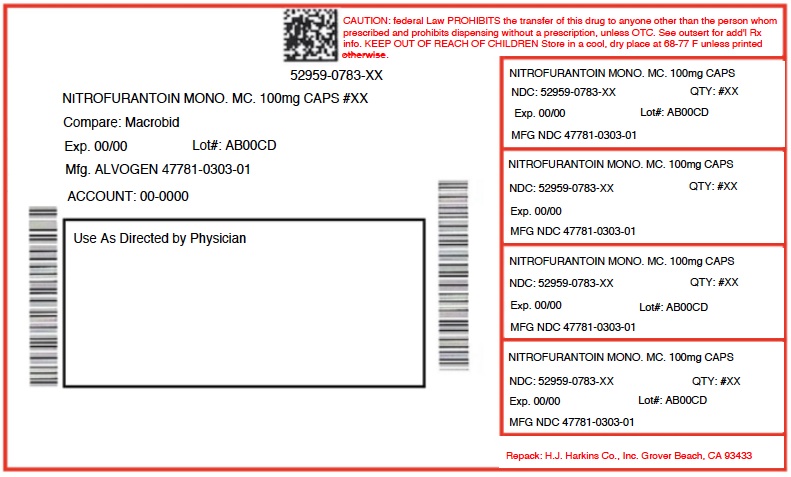Nitrofurantoin Monohydrate Macrocrystalline | Nitrofurantoin Monohydrate Capsule while Breastfeeding

What is Nitrofurantoin Monohydrate Macrocrystalline | Nitrofurantoin Monohydrate Capsule ?
Can I use Nitrofurantoin Monohydrate Macrocrystalline | Nitrofurantoin Monohydrate Capsule while breastfeeding?

Nitrofurantoin Monohydrate Macrocrystalline | Nitrofurantoin Monohydrate Capsule Breastfeeding Analsys
Nitrofurantoin while Breastfeeding
SafeCAS Number: 67-20-9
Excretion into breast milk is clinically non-significant with no side-effects observed among breastfed infants from treated mothers except rare cases of diarrhea. Do not use while the infant is younger of two weeks of age or suffers of G-6-P dehydrogenase deficiency to avoid likelihood of hemolysis. Be aware of false negative results that may be obtained from febrile infants with bacterial cultures when the mother is on antibiotics. Also, the possibility of developing diarrhea due to bacterial flora imbalance.
Nitrofurantoin while Breastfeeding
SafeCAS Number: 67-20-9
Excretion into breast milk is clinically non-significant with no side-effects observed among breastfed infants from treated mothers except rare cases of diarrhea. Do not use while the infant is younger of two weeks of age or suffers of G-6-P dehydrogenase deficiency to avoid likelihood of hemolysis. Be aware of false negative results that may be obtained from febrile infants with bacterial cultures when the mother is on antibiotics. Also, the possibility of developing diarrhea due to bacterial flora imbalance.
Nitrofurantoin Monohydrate Macrocrystalline | Nitrofurantoin Monohydrate Capsule Breastfeeding Analsys - 2
Nitrofurantoin while Breastfeeding
CAS Number: 67-20-9
Administration of nitrofurantoin directly to infants under 1 month of age and in those with glucose-6-phosphate dehydrogenase (G6PD) deficiency is contraindicated because of potential hemolysis in these infants. However, the time of greatest risk for hemolysis in fullterm newborns without G6PD deficiency might be as short as 8 days after birth.[1] Nitrofurantoin doses in milk are low and it can be used while breastfeeding older infants, but alternate drugs are preferred in mothers of infants under 8 days of age, or infants with G6PD deficiency of any age. Observe infants for possible diarrhea.
Nitrofurantoin while Breastfeeding
CAS Number: 67-20-9
Administration of nitrofurantoin directly to infants under 1 month of age and in those with glucose-6-phosphate dehydrogenase (G6PD) deficiency is contraindicated because of potential hemolysis in these infants. However, the time of greatest risk for hemolysis in fullterm newborns without G6PD deficiency might be as short as 8 days after birth.[1] Nitrofurantoin doses in milk are low and it can be used while breastfeeding older infants, but alternate drugs are preferred in mothers of infants under 8 days of age, or infants with G6PD deficiency of any age. Observe infants for possible diarrhea.
What if I already have used Nitrofurantoin Monohydrate Macrocrystalline | Nitrofurantoin Monohydrate Capsule?
As usage of Nitrofurantoin Monohydrate Macrocrystalline | Nitrofurantoin Monohydrate Capsule is mostly safe while breastfeeding hence there should not be any concern. In case of any change in behavior or health of your baby you should inform your health care provider about usage of Nitrofurantoin Monohydrate Macrocrystalline | Nitrofurantoin Monohydrate Capsule else no further action is required.
My doctor has prescribed me Nitrofurantoin Monohydrate Macrocrystalline | Nitrofurantoin Monohydrate Capsule, what should I do?
Definitely, Nitrofurantoin Monohydrate Macrocrystalline | Nitrofurantoin Monohydrate Capsule is safe in lactation for baby. No wonder your doctor has recommended it.
If I am using Nitrofurantoin Monohydrate Macrocrystalline | Nitrofurantoin Monohydrate Capsule, will my baby need extra monitoring?
No extra baby monitoring required while mother is using Nitrofurantoin Monohydrate Macrocrystalline | Nitrofurantoin Monohydrate Capsule
Who can I talk to if I have questions about usage of Nitrofurantoin Monohydrate Macrocrystalline | Nitrofurantoin Monohydrate Capsule in breastfeeding?
US
National Womens Health and Breastfeeding Helpline: 800-994-9662 (TDD 888-220-5446) 9 a.m. and 6 p.m. ET, Monday through Friday
UK
National Breastfeeding Helpline: 0300-100-0212 9.30am to 9.30pm, daily
Association of Breastfeeding Mothers: 0300-330-5453
La Leche League: 0345-120-2918
The Breastfeeding Network supporter line in Bengali and Sylheti: 0300-456-2421
National Childbirth Trust (NCT): 0300-330-0700
Australia
National Breastfeeding Helpline: 1800-686-268 24 hours a day, 7 days a week
Canada
Telehealth Ontario for breastfeeding: 1-866-797-0000 24 hours a day, 7 days a week
